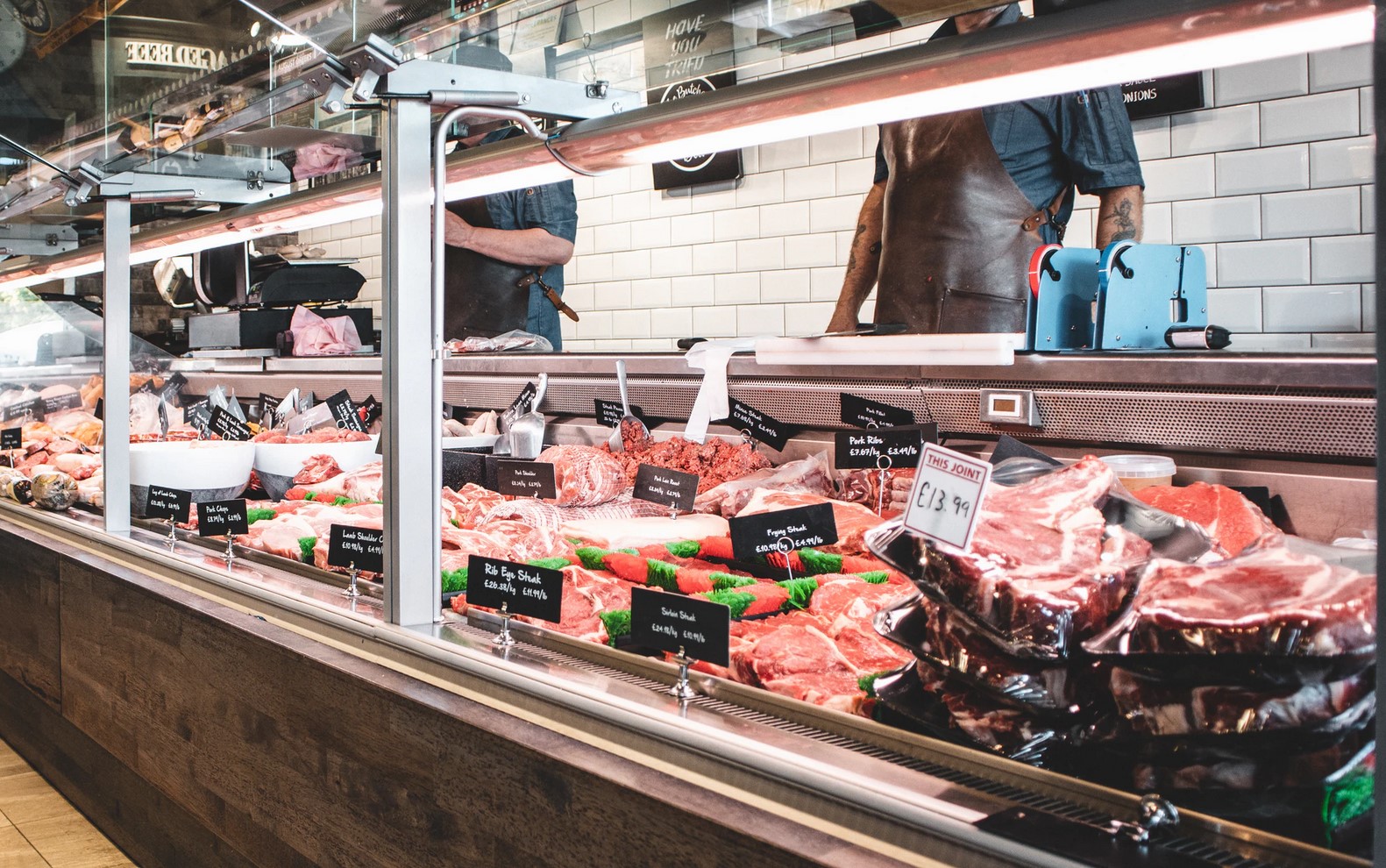Supermarket scorecard reveals UK retailers are fuelling demand for meat and dairy at expense of the climate
UK supermarkets are fuelling demand for meat and dairy products which is harming public health and the climate, reveals a new supermarket scorecard published by environmental charity, Feedback, today.
The scorecard ranks the UK’s top 10 supermarkets on their efforts to reduce the environmental cost of the meat and dairy products they sell. The Co-op, Tesco, and Waitrose top the rankings but even the Co-op, the best performing retailer, scored just 45%. Asda, Iceland and Lidl ranked bottom with the worst performer, Lidl, scoring just 17%.
Carina Millstone, Executive Director of Feedback, said: “UK supermarkets are continuing to drive demand for meat and dairy products that are already responsible for around 15% of greenhouse gas emissions - and fuelling deforestation in the Amazon and elsewhere. It’s time for supermarkets to step up to the plate, slash their meat and dairy products and offer customers more sustainable and healthier options”.
The scorecard revealed that many supermarkets have improved their environmental policies since the last assessment in 2019 but that they were failing to translate this into action:
· All 10 supermarkets actively encourage meat consumption through promotions, and not just to avoid waste when products near their expiry dates. This means retailers are fuelling – and not simply responding to - demand for meat.
· Only one supermarket, the Co-op, is accurately measuring and publicly reporting on the climate impact of the goods it sells – but only for its own label products.
· Half the supermarkets including Tesco, M&S and ALDI continue to use misleading or ‘fake farm’ labels and names such as ‘Trusted Farms’ which give the impression that their meat is produced to higher standards than is the reality.
· Options such as organic or free range make up less than 20% of the products offered by all the supermarkets, while Iceland offers no free range or organic options. Only 3 retailers – Asda, Morrisons and Tesco – ensure that more than a quarter of the ready to cook meals they offer are vegetarian or vegan.
· None of the supermarkets reveal how much meat and dairy they sell as a proportion of their protein sales, making it difficult to track their progress.
More promising signs include the steps taken by all retailers to promote healthy fruit and vegetable consumption, commitments from the Co-op and Sainsbury’s to link board or senior leadership remuneration to achieving environmental outcomes, and supermarkets’ work to put pressure on Brazilian suppliers to prevent products linked to deforestation from entering their supply chains. All the retailers, with the exception of Iceland and ASDA, have made a public commitment to drop meat linked to deforestation, however they have yet to remove these products, including chicken and pork fed on soya grown in deforested areas, from their shelves.
Meat and dairy production contribute to climate change through direct emissions from animals and their waste and through the destruction of important ecosystems such as the Amazon rainforest to raise cattle or grow soy for animal feed. The UK imports the majority of its soya from South America, at least 90% of which is fed to animals, particularly chicken and pork.
The 10 supermarkets control 94% of the UK grocery market and have a huge influence on what we eat through the products they sell, and the way in which they market, package and promote them. Many customers want to reduce the health and environmental impacts of their food with 43% of people surveyed by YouGov say they often make the choice to reduce their meat consumption when shopping.
The government's Committee on Climate Change has said the UK need to cut meat and dairy consumption by 20% by 2030 to meet its climate commitments while the University of Oxford estimates consumption of meats such as beef should be cut by as much as 89% to meet the NHS Eatwell guidelines.
Millstone added: “With 3 out of 4 shoppers visiting supermarkets several times a week, it is clear that retailers have a special responsibility to help their customers enjoy food that is both good for them and for the planet. Supermarkets must be clear about the climate impact of the food they sell and commit to selling much less meat and dairy and much more fruit and veg.
Former Arsenal and Crystal Palace footballer and environmental entrepreneur, Mathieu Flamini, said: “Reducing my consumption of animal protein and dairy improved my health and my performance on and off the pitch: I was able to recover quicker and cope with the daily workload better. I was not only doing myself good by eating less meat, but as a nature lover I was also able to reduce my impact on the planet. We all need to do our bit, including the retailers who supply us with so much of the food we eat.”
Simon Billing, Executive Director of Eating Better added: “Feedback’s scorecard shows retailers are still focused on boosting meat sales, despite setting net zero targets and pledging to help us eat healthier and more sustainably. Making it easier for shoppers to buy more meat and dairy than they need, or probably want is not the way forward for our health, or that of the planet.”
The 2021 scorecard ranking, and scores are outlined below:
|
Rank |
Supermarket |
Score (%) |
|
1st |
Co-op |
45.6% |
|
2nd |
Tesco |
41.3% |
|
3rd |
Waitrose |
38.1% |
|
4th |
Sainsbury's |
37.5% |
|
5th |
M&S |
33.1% |
|
6th |
Aldi |
28.1% |
|
7th |
ASDA |
23.8% |
|
8th |
Morrisons |
22.5% |
|
9th |
Iceland |
21.9% |
|
10th |
Lidl |
17.5% |























